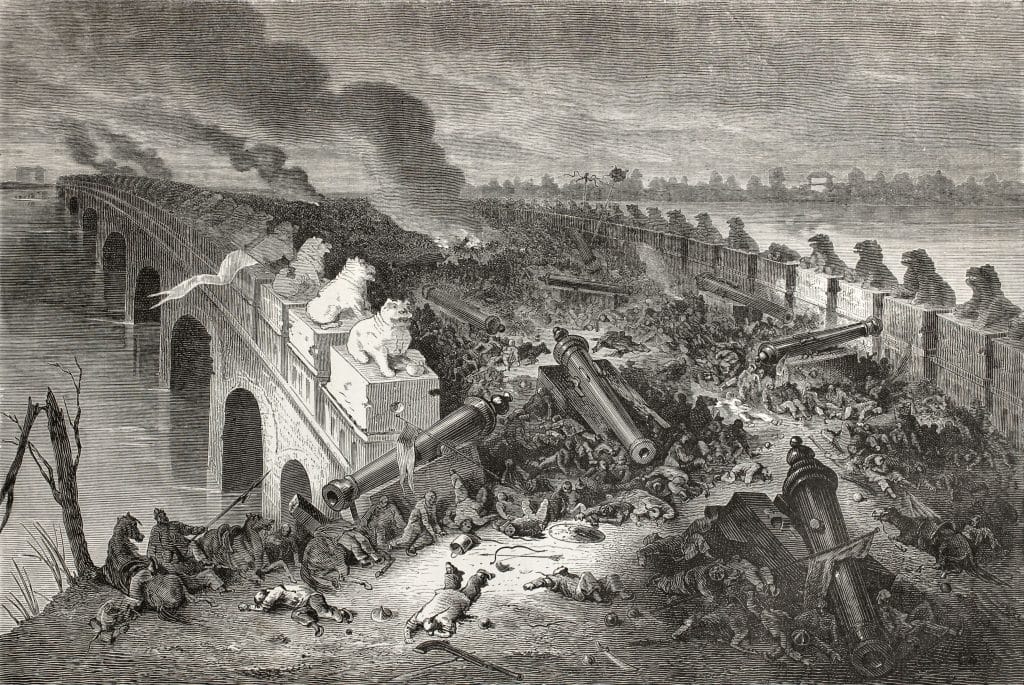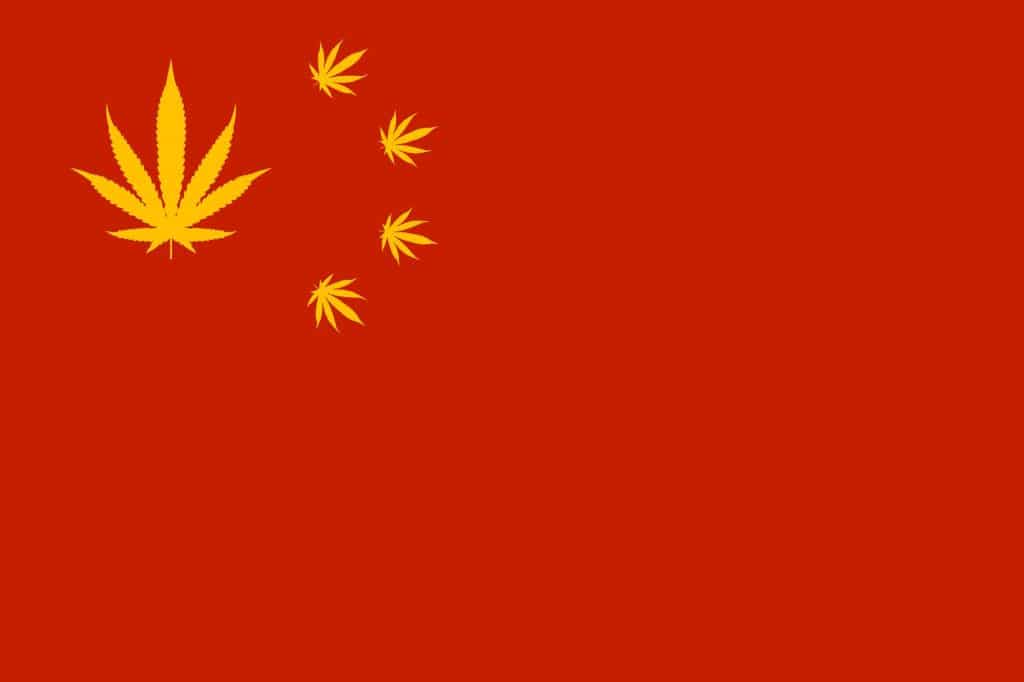China has yet to be a country to embrace the use of cannabis in any way, even as it remains a top global exporter of hemp. In a new move, the Chinese territory of Hong Kong is looking to not only ban CBD, but to classify it as a drug like heroin or methamphetamine.
The China/Hong Kong relationship
Technically this news story isn’t about mainland China. It’s about Hong Kong, a city of 7.5 million with a strange history that makes it part of China since 1997. In fact, Hong Kong started as a British colony in the early 1840’s. In 1898, Britain actually got itself a 99-year lease on the city. This was temporarily upended during WWII when the city was occupied by imperial Japan, but returned to British control in 1945 upon the war’s end.
Now, Hong Kong is located on the South-Eastern side of China. During most of the last nearly 200 years, China was not much of a super power, despite its size, so that the British empire had control isn’t shocking. But it certainly isn’t the case anymore. In 1997, Hong Kong went from British ownership, to Chinese ownership. It is considered an administrative region, with separate governance from mainland China, though I expect it would be silly to assume that the standard Chinese government doesn’t maintain control, even if below board (I mean, c’mon…)
Hong Kong is a major industrial city, housing 7.5 million, which also makes it one of the most densely populated cities in the world, as it sits on only 426 square miles. It’s a massive business center that acts as a major global financial center, and which is ranked 3rd on the Global Financial Centres Index. People in Hong Kong have a high life expectancy, the city has the third highest level of billionaires in a city, and it has a very high income per capita. Though it shouldn’t be understated that there is still a massive issue with wealth inequality, making for a city with both an incredibly high, and incredibly low, priced housing market.
Hello everyone and thanks for joining us. Stay current with all news by subscribing to the Cannadelics Weekly Newsletter, which also comes chock full of sweet deals on cannabis flowers, vapes, edibles, smoking devices and other equipment, cannabinoid compounds (like delta-8), and a bunch more. Let’s all get baked responsibly!
The city maintains one of the most highly developed transportation systems, with an entire 90% of its population that use it. The city is considered one of the highest developed in the entire world; and while it is governed separately from China, there has always been an understanding that Hong Kong bows to the will of China. In fact, China is known for being excessively forceful, even when it promises not to be. Which brings up just how much mainland China is an influence in what I’m about to get into next.
Does Hong Kong and CBD hark back to Opium Wars?
This most recent news story has to do with Hong Kong’s classification of the compound CBD. It was decided in October, that Hong Kong will outlaw all CBD products, putting them in the same category as drugs like heroin. It plans to have this done by February of 2023. Up until now, the city has been selling CBD products. In fact, tons of them in infused products like beer and coffee, and as supplements. As per a government official, “The trade and the public should arrange early disposal of any CBD products in their possession to avoid contravention of the law.”
Now, the comparison to drugs like heroin is interesting. You see, China had a major issue with opium, in what were called the Opium Wars. In short, opium was used by the British to essentially weaken the Chinese, in order to take advantage of the country and its people; at the expense of the Chinese population which suffered major social and industrial issues from the widespread opium addictions. And it worked pretty well for a time. The first Opium War took place in the early 1840’s, when Hong Kong was taken by the British.
Imagine that, pushing a drug industry in a country to get everyone addicted so that their land could be taken over and their people abused. And that’s exactly what happened. The first war was because China seized the product, trying to stop its sale. The British empire, pushing an idea of free trade, wanted to keep the drug flowing through the country it was taking advantage of, and making a profit from.
The second Opium War started in the mid-1850’s, and had to do with the right to keep trading opium in and out of China. Like the first one, it was the Qing dynasty against the British empire, this time with help from the French, and the latter won again, maintaining control of China through opium addictions, and this time making China cede some of its land to the Russians. While awful historical moves are often sanitized, the Opium Wars and the treatment of the Chinese by the British, represents a reprehensible act in history, for which no formal apology has ever been made.
In fact, when looking at Chinese drug laws, and the harshness of them, much of the reason for this can be attributed to these Opium Wars. China might be known to go overboard with strict regulation, but in an actually very human showing, it also really doesn’t want any country coming in and taking control through drugs ever again. How much this plays into a decision on CBD is certainly hard to say, but it does give a massive amount of credence to the idea that China doesn’t want its people messed with by drugs. And for an extremely appropriate historical reason.

The reason I bring this history up, is that in putting CBD in the same category as heroin (opium), it begs the question as to whether this is just some weird backhanded move for another reason, or if there’s a fear in China of having its people exposed to something that could alter their ability to think and perform in life, much like the opium did. In a speech at the time of the announcement, former-police-officer-turned-chief executive John Lee, stated:
“Cannabis is a drug, and the government will categorize CBD as a dangerous drug… to protect the public’s health.” While there might not be actual validity to the statement in terms of a real danger, it is perhaps understandable for China to be cautious.
But…China is the biggest exporter for hemp
I suppose this can be looked at as ‘do as I say, not as I do’, or perhaps it’s a chink in the general logic. China might be barring cannabis entirely to its population, including CBD now, but it is the biggest supplier of hemp and medical cannabis, globally.
How much does the country export out? Well, in terms of just cannabis oil, numbers from 2019 show that China exported nearly $1 billion in cannabis oil alone, which accounted for 33.4% of the market that year. How much was the next biggest exporter for comparison? India, which exported about $320 million worth for the year, which is about 1/3 as much. In fact, when CBD started ending up in cosmetics, China went ahead and closed the loophole, banning it from those products too. Cannabis is 100% illegal in China, and that includes all parts of it.
Yet this doesn’t stop it from being a massive cash crop. Commercial hemp was legalized for growing in 2010, and China currently holds about half the world’s hemp-growing space (though recent legalizations and new countries entering the market might change this a bit). Much of this takes place in the Yunnan province, where its said hemp growing makes the land worth about $300/acre. At that rate, its more profitable than even the plant that makes Canola oil – rapeseed.
Just how much does the country actually export as a whole? Unfortunately this information is harder to come by as China isn’t very into sharing such information. But we do know a few things. First off, though the info is a couple years old, according to the World Intellectual Property Organization, about half of all global patents for cannabis belong to Chinese companies or individuals, which equals about 306 of 606 (though these numbers are likely changed due to growing industries worldwide).

We also know there are around 50 enterprises with licenses to grow industrial cannabis in China, while only a handful have a license for production. And we know that at least two of China’s 34 regions are known for the cultivation of cannabis for CBD.
While there are plenty of countries that have inconsistent laws regarding cannabis, allowing the production and export, without allowing access to their own people, China stands out for one particular reason. There have been, and are, plenty of natural medicine traditions in the history of the world, and even today. However, Traditional Chinese Medicine is probably the most enduring, which makes it that much more of a contradiction that a country in which 32% (in 2018) of medical visits were made to traditional medicine practitioners, still bans one of the plants most used as a medicine, and for which the country has a rich history of medical use.
Conclusion
We don’t really know for sure why China does what it does, and exactly how it does it. And we don’t know how much influence the regular Chinese government had over the recent announcement for Hong Kong to ban CBD. But it would be weird to let your administrative region keep using something banned on the mainland, right? Seems likely to me, that this is just another example of a Chinese overstep into the governing of Hong Kong.
Hello and welcome to the site!! We greatly appreciate you coming to hang out with us at Cannadelics.com; where we work hard to get you the best in cannabis and psychedelics news reporting. Stop over every day to keep up-to-date on everything relevant, and subscribe to the Cannadelics Weekly Newsletter, so you’re always first to get the news.
The post Hong Kong to Ban CBD – Is This China Overstepping? appeared first on Cannadelics.
Via https://cannadelics.com/2022/11/20/hong-kong-to-ban-cbd-is-this-china-overstepping/
source https://rosalinaklerkx.weebly.com/blog/hong-kong-to-ban-cbd-is-this-china-overstepping
No comments:
Post a Comment